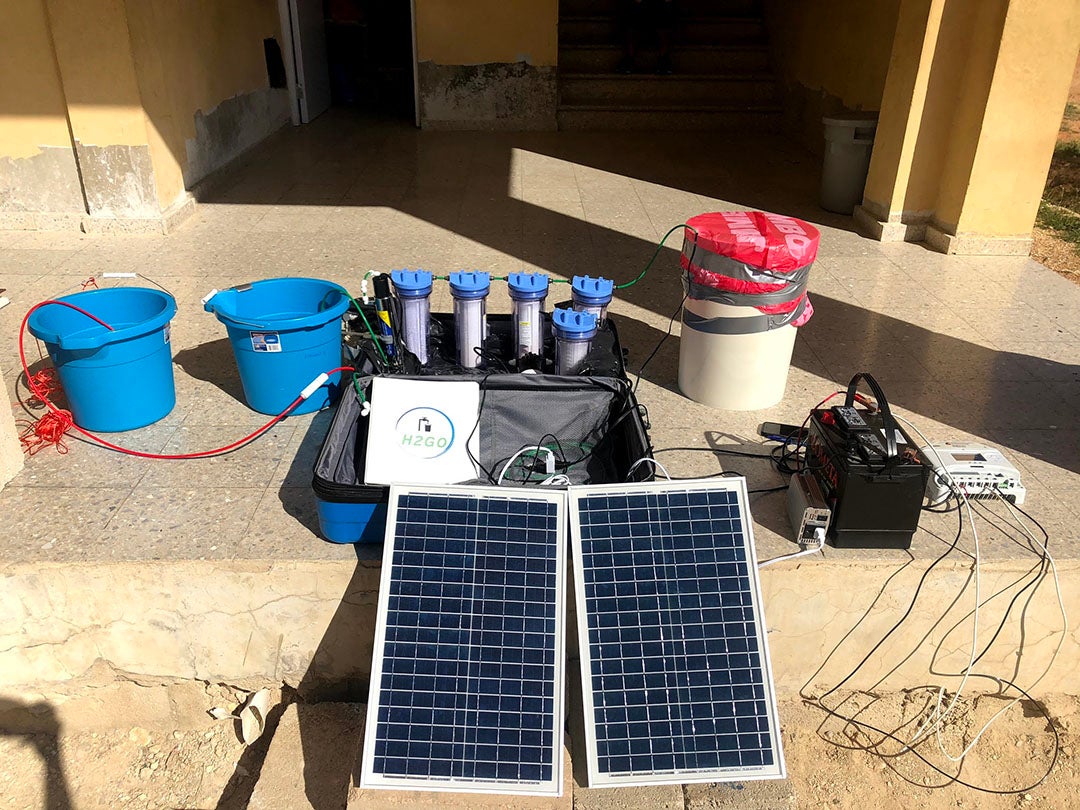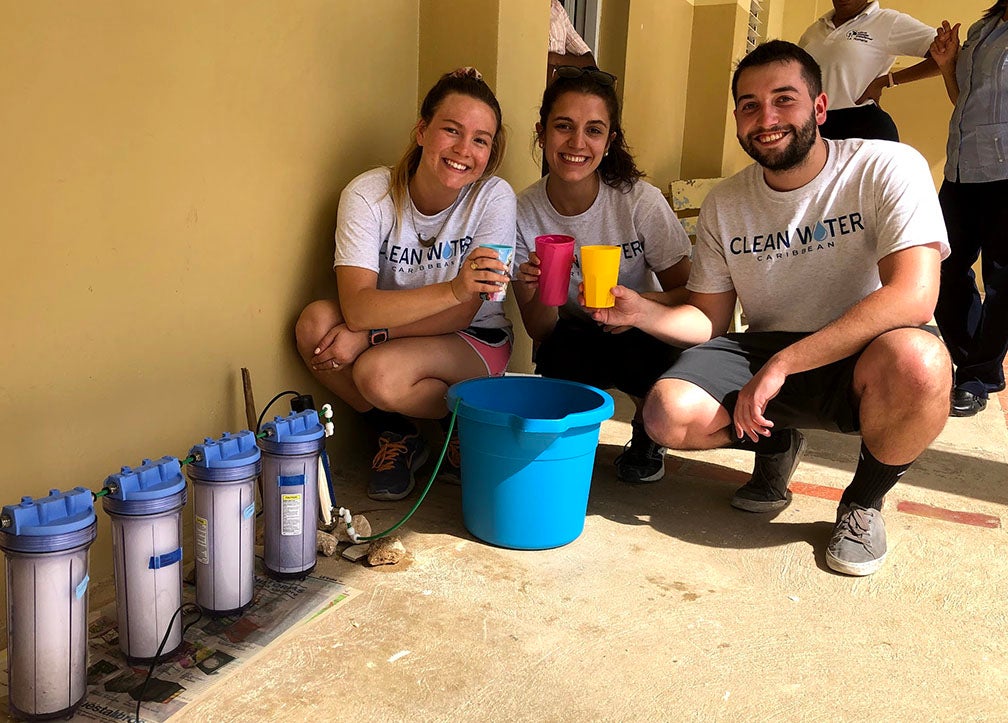KINGSTON R.I. – April 29, 2019 – According to the United Nations, by 2025, an estimated 1.8 billion people will live in areas plagued by water scarcity, with two-thirds of the world’s population living in water-stressed regions as a result of use, growth and climate change.
Determined to make clean drinking water accessible to a community in need, three engineering students from the University of Rhode Island developed a small water treatment system for the rural city of La Romana in the Dominican Republic.
Juniors Isabella Silverman and Alexa Leone, and senior Ian Hallam developed a prototype of their system in the fall 2018 semester, prior to traveling to the Caribbean nation in January.
Their project, “H2gO: A Portable Water Treatment System,” and subsequent trip, was supported by the URI Office of Undergraduate Research and Innovation and a Woodward & Curran Foundation Grant for Clean Water Initiatives.

Under the guidance of civil and environmental engineering Associate Professor Vinka Oyanedel-Craver, the students designed their prototype to meet specific criteria. The system had to fit in a suitcase, be powered by solar energy, not exceed a specified weight limit and be made of materials that could be found in the Dominican Republic.
When the students arrived in La Romana on Jan. 2, they were ready to use their system for the first time.
“We tested the water quality in people’s homes for salt water intrusion, which is a direct result of climate change from the rising sea levels in the Dominican Republic,” said Silverman, an ocean engineering student from Cumberland.
Not only was contamination in the form of salinity and E. coli found in almost all cases of untreated tap water, but also in bottled water.
According to Oyanedel-Craver, bottled water is expensive in rural areas of the Dominican Republic and there is no oversight of the quality of the water sold by companies
The students also used their water treatment system at a school and two daycare centers managed by the Padres Escolapios (Piarist Fathers). They tested various water quality parameters and the performance of the solar panels to supply power to the system.
“Their preliminary tests were very promising, having removed or deactivated potentially pathogenic organisms in most cases,” stated Oyanedel-Craver.
Collaborating with the community made a lasting impression on the URI students.
“Being immersed in the people’s way of living gave me a new perspective on life,” said Hallam, a mechanical engineering student from Smithtown, New York. “When the system was fully functioning and self-sustaining, it was a very heartwarming experience to watch the preschoolers drink the clean, purified water.”
“It’s easy to take clean water for granted in the United States because it is so accessible,” added Leone, an ocean engineering student from Hillsborough, New Jersey, who is minoring in environmental engineering. “I’m fortunate that I had the opportunity to improve the quality of someone’s life by providing clean drinking water.”
The three students were recognized for their work at the New England Water Works Association (NEWWA) Spring Regional Conference and Exhibition, held on April 3 at the DCU Center in Worcester, Massachusetts.
Their project, which they depicted on a poster, won first place in the undergraduate division of the “Fresh Ideas” College Student Poster Session.
Zachary Shepard, who is pursuing his master’s degree and doctorate in civil and environmental engineering at URI, captured third place in the graduate division of the poster competition.
The resident of Richmond, Rhode Island, did his project on “Evaluation of a Quality Control Technique for Ceramic Water Filters (CWFs) Impregnated with Silver Nanoparticles.”
The objective of Shepard’s project was to develop standardized quality control techniques for CWFs, which are used in rural developing communities around the world for water treatment. It has been found that their performance varies widely, depending on where they are made.
Juniors Elizabeth Lux, a civil and environmental engineering major, and Jake Bosworth, a chemical engineering major, assisted Shepard with the project.
This study was conducted in partnership with Potters Without Borders and Potter for Peace, two organizations promoting the quality control technology worldwide.

